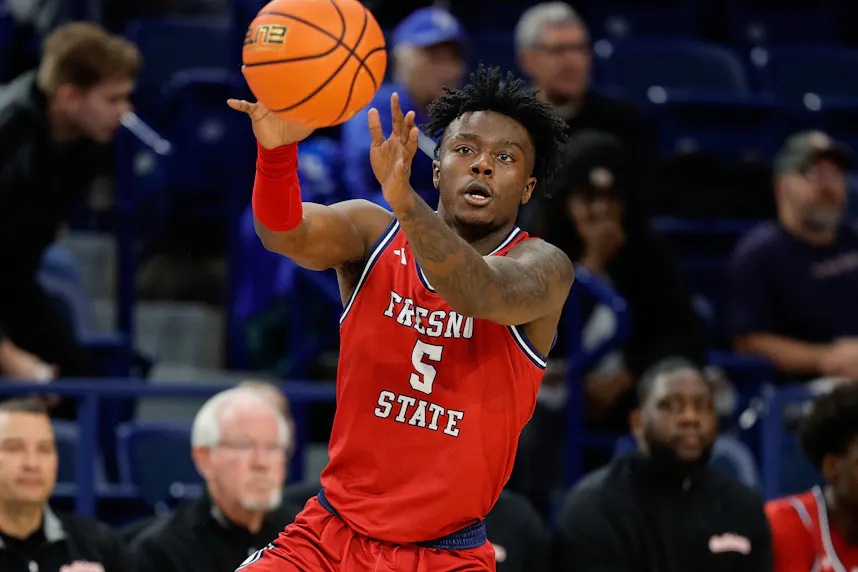NCAA Permanently Bans Three Basketball Players Over Betting Scandal

Last Updated: September 12, 2025 2:50 PM EDT • 3 minute read X Social Google News Link


The NCAA permanently banned three former college basketball players on Wednesday following the results of a gambling investigation tied to Fresno State and San Jose State. Mykell Robinson, Steven Vasquez, and Jalen Weaver were all ruled permanently ineligible and released from their teams, with the NCAA citing violations during the 2024-25 season.
Investigators found that the athletes bet on their own games and exchanged information that enabled others to do the same. In two cases, players allegedly altered their performance to manipulate betting outcomes. The case originated from suspicious wagers flagged on Robinson's individual statistics, which led to a broader inquiry.
Evidence showed Robinson and Vasquez, who had been roommates, coordinated prop bets by sharing information. In January, the two and a third party wagered $2,200 on Robinson to underperform in a game, resulting in nearly $16,000 in winnings.
Text messages reviewed by the NCAA confirmed Robinson's intent to miss performance benchmarks.
Robinson was also found to have placed 13 daily fantasy wagers on his own performances, including parlays that led to payouts of more than $600. Additionally, he exchanged betting data with Weaver, who placed a $50 parlay bet involving multiple teammates' stats that returned $260.
While Weaver admitted to violations during the inquiry, Robinson and Vasquez did not cooperate.
Maintaining the integrity of sports is of paramount importance to our best sports betting sites as well as professional and college leagues and governing bodies.
Backlash amid proposed changes to betting rules
The bans come as the NCAA contemplates modifying its overall policy on gaming. In early summer, the Division I Council brought forward a rule that would allow student-athletes and athletic administration staff members to place wagers on professional games. Still, bets on collegiate games would remain prohibited.
The rule, which would be implemented in October, would require Divisions II and III to approve companion modifications.
Supporters of the proposal cite the need for the group to modernize its stance, noting that current rules were developed when many sporting bets were prohibited across the US. Illinois athletics director Josh Whitman, who chairs the council, said the issue is worth re-visiting as professional sporting bets become increasingly mainstream.
The NCAA contends that implicated players who are guilty of betting on their own games can still receive permanent ineligibility. Critics, though, reference the danger of rule relaxation without safeguards, including the danger of addiction, financial unpredictability and exposure to unregulated markets within those states where it remains illegal.
Industry insiders point out that the NCAA would be negligent if it fails to prioritize education programs on the dangers of gambling, financial education, and responsible gaming if the plan proceeds. The rationale highlights the cultural development of the college football and basketball world, wherein the game of legalized sports betting and name, image, and likeness are transforming the amateur athletics and commercial interests paradigm.
The council's decision could shape the NCAA's response to these converging forces for the foreseeable future.

Ziv Chen X social





